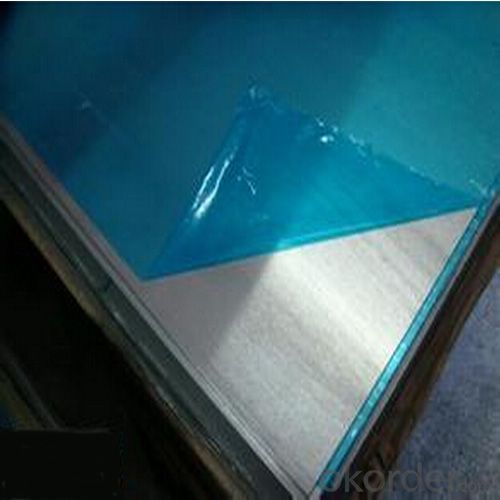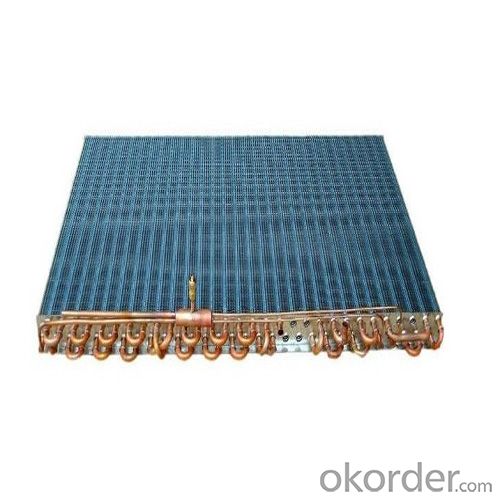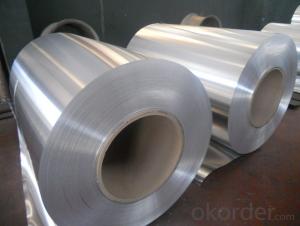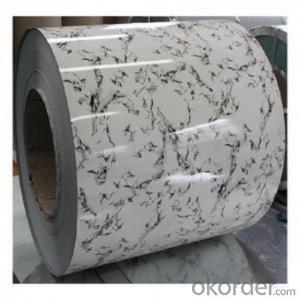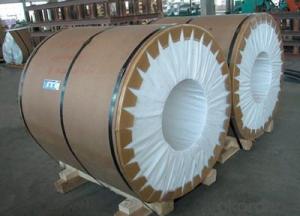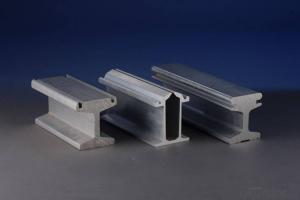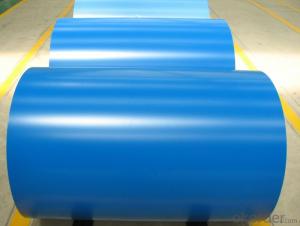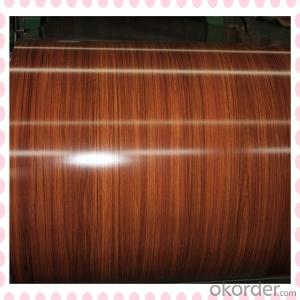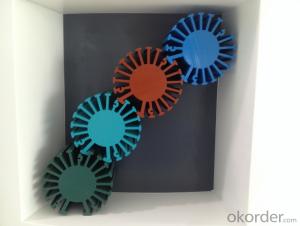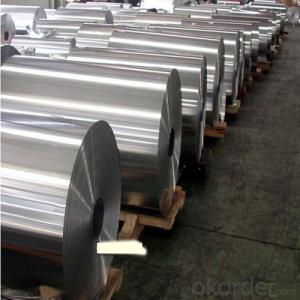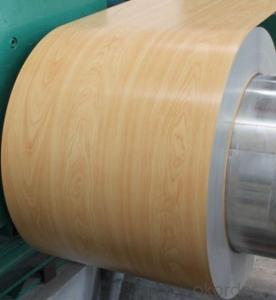Aluminum Coil Pipe Aluminum Refrigerator Condenser Coils for Condensing Unit
- Loading Port:
- Shanghai
- Payment Terms:
- TT OR LC
- Min Order Qty:
- 5 m.t.
- Supply Capability:
- 10000 m.t./month
OKorder Service Pledge
OKorder Financial Service
You Might Also Like
Specification
1.Structure of Aluminum Refrigerator Condenser Coils for Condensing Unit Description:
Heat transfer occurs when there is a difference in temperature between two mediums. They are widely used in construction and decoration, hardware and electric appliances manufacture, automobile manufacture and other industrial and civil purposes, such as electronic capacitor, rice cooker, refrigerator, computer casting, lamp shade, air-conditioner, cosmetics cover and box, air-conditioner radiator, inner container of disinfecting cabinet, ceiling board, automobile motherboard, cover board and top board, etc.
2.Main Features of Aluminum Refrigerator Condenser Coils for Condensing Unit :
1). Brazed Aluminum construction
2). Combination welded cores-Air&Oil cores
3). Brazed aluminum core/bar and plate
4). Excellent for field conversions
5). Compact design
6). Light weight
3. Aluminum Refrigerator Condenser Coils for Condensing Unit Images:
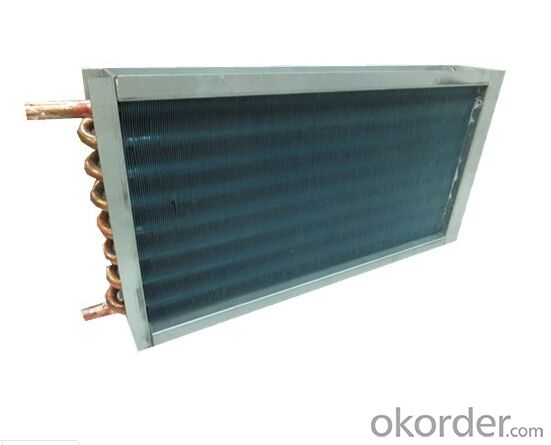
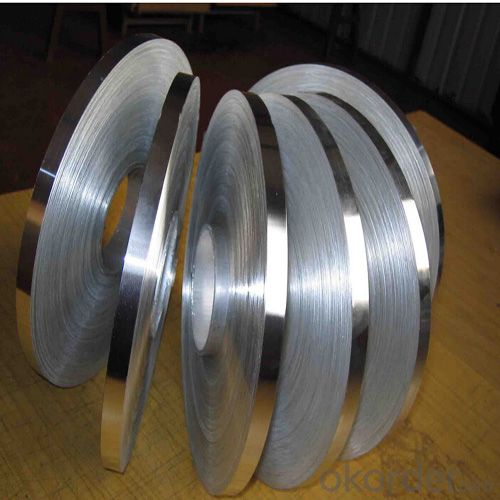
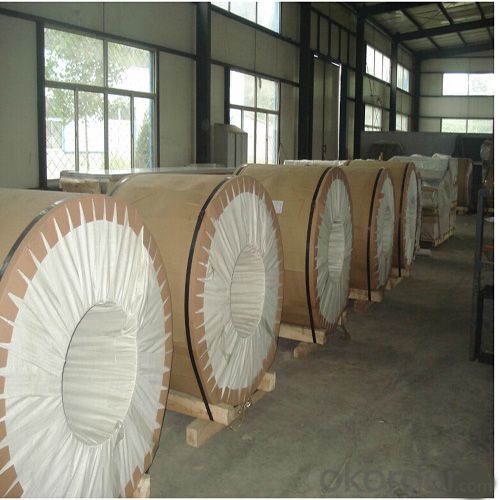
4. Aluminum Refrigerator Condenser Coils for Condensing Unit Specification:
| Alloy No. | Thickness (mm) | Width (mm) | Length (mm) | Temper | |
| A1050,A1060, A1070,A1100 | 0.2-100 | 20-2200 | 20-8000 | O,H12,H22,H14,H16,H18, H24,H26,etc | |
| 3A21,A3003,A3105,A3004 | 0.2-100 | 20-2200 | 20-8000 | O,H14,H18,H24,etc | |
| A5052 ,A5005,A5083,A5754 | 0.2-100 | 20-2200 | 20-8000 | O,H18,H24,H32,H34,H111,H112 ,etc | |
| A6061,A6082,A6063 | 0.2-200 | 20-2200 | 20-8000 | T4,T6, T651,etc | |
| A8011 | 0.2-100 | 20-2200 | 20-8000 | O,H12,H22,H14,H16,H18,H24,H26, etc | |
5.FAQ
Q1.How long have you been in this product?
A1:More than 10 years.
Q2. What's the minium quantity(MOQ)?
A2. 5 Metric tons
Q3. How long is shipping time?
A3. 7 (ready-made products)-25 days(OEM)
Q4. How do you guarantee the quality?
A4. 1. Cooperating and Exchaning experience with sevral quoted aluminum companies
2. Japanese and Swiss production line and skilled works (regular training and testing)
3. more than 10 years production experience.
Q5. Do you have after sale service?
A5. Yes. Any quality problem occurs within one year, pls take photoes,we will be responsible.
- Q: What’s the difference between aluminum tile, coil and sheet? Why?
- Wood pallet is often used, which is easy to transport and can ensure the safety of products.
- Q: What are the energy efficiency benefits of aluminum coils?
- Aluminum coils provide numerous energy efficiency benefits that make them a preferred choice in various industries. Firstly, aluminum is an excellent conductor of heat, allowing for efficient transfer of thermal energy. This property is especially advantageous in the HVAC industry, where aluminum coils are commonly used in air conditioning and refrigeration systems. The high thermal conductivity of aluminum ensures that heat is effectively absorbed or released, resulting in faster cooling or heating processes and lower energy consumption. Additionally, aluminum coils possess exceptional corrosion resistance, which helps maintain their efficiency over time. Unlike other metals that may deteriorate due to exposure to moisture or chemicals, aluminum remains unaffected, ensuring optimal heat transfer efficiency throughout the lifespan of the coil. By preserving the coil's performance, energy losses due to reduced heat transfer are minimized, resulting in energy savings and increased system efficiency. Another significant advantage of aluminum coils is their lightweight nature. Compared to traditional copper coils, aluminum coils are significantly lighter, making them easier to handle during installation and maintenance. The reduced weight also translates into lower energy requirements for transportation, resulting in reduced carbon emissions associated with shipping. Furthermore, aluminum is a recyclable material, making it environmentally friendly and sustainable. The recycling process of aluminum requires significantly less energy compared to primary production, leading to reduced greenhouse gas emissions. By choosing aluminum coils, businesses can contribute to a more sustainable future by reducing their carbon footprint. Overall, the energy efficiency benefits of aluminum coils are vast. Their excellent thermal conductivity, corrosion resistance, lightweight nature, and recyclability make them an ideal choice for various applications, leading to reduced energy consumption, enhanced system performance, and a more sustainable environment.
- Q: How do aluminum coils contribute to the corrosion resistance of products?
- Aluminum coils contribute to the corrosion resistance of products due to the natural oxide layer that forms on the surface of aluminum, which acts as a protective barrier against corrosion. This oxide layer is stable and prevents further oxidation of the metal, thereby enhancing the durability and lifespan of products.
- Q: Are aluminum coils resistant to mold and mildew?
- Yes, aluminum coils are highly resistant to mold and mildew. Aluminum does not provide a favorable environment for mold or mildew growth, making it an excellent choice for applications where moisture and humidity are concerns.
- Q: How are aluminum coils tested for strength and durability?
- Aluminum coils are tested for strength and durability through a rigorous process that involves several methods. One common method is tensile testing, which measures the maximum amount of stress a coil can withstand before it breaks or deforms. This test helps determine the overall strength and elasticity of the aluminum. Another important test is the hardness test, which measures the resistance of the aluminum coil to indentation or scratching. This test helps determine the durability and wear resistance of the material. Furthermore, aluminum coils are often subjected to fatigue testing, where the material is repeatedly subjected to cyclic loading and unloading. This test helps simulate real-life conditions and assesses the coil's ability to withstand repeated stress without failure. Additionally, corrosion resistance is a critical factor in determining the durability of aluminum coils. Therefore, various corrosion tests are conducted, such as salt spray testing, to assess the coil's resistance to environmental factors that may lead to corrosion or degradation over time. In some cases, non-destructive testing methods like ultrasonic testing or eddy current testing are employed to detect any internal defects or inconsistencies within the coil that may affect its strength and durability. Overall, a combination of mechanical, physical, and chemical tests are conducted on aluminum coils to ensure they meet the required strength and durability standards. These tests help manufacturers and consumers have confidence in the quality and reliability of the aluminum coils for various applications.
- Q: This question asks about potential safety hazards when using electric heaters that have aluminum coils.
- <p>While electric heaters with aluminum coils are generally safe when used properly, there are some safety concerns to consider. Aluminum can heat up quickly and may become very hot, posing a risk of burns if touched. Additionally, aluminum coils can corrode over time, potentially leading to electrical shorts or fires. It's important to ensure that the heater is not covered or obstructed, as this can cause overheating. Always follow the manufacturer's instructions for use and safety precautions. Regularly inspect the heater for any signs of damage or wear, and never use a heater with a damaged cord or plug.</p>
- Q: How are aluminum coils protected against transportation damage?
- Aluminum coils are protected against transportation damage through various measures implemented by manufacturers and transportation companies. First and foremost, aluminum coils are usually packaged and stored in sturdy crates or pallets that provide a protective barrier against external impact and ensure stability during transit. These crates are often made of wood or metal and are designed to withstand the rigors of transportation. To further safeguard against damage, the coils are often wrapped in protective materials such as plastic or stretch film. This additional layer of packaging helps to prevent scratches, abrasions, and moisture damage during handling and transportation. The coils may also be secured within the crates or pallets using straps or bands to prevent movement and potential impact with other objects. Furthermore, manufacturers often utilize padding materials such as foam or cardboard inserts to create a cushioning effect within the packaging. These inserts help absorb shock and vibration during transit, reducing the risk of damage caused by impacts or sudden movements. Additionally, transportation companies play a crucial role in ensuring the safe transportation of aluminum coils. They employ specialized handling equipment such as forklifts or cranes to minimize the risk of mishandling and dropping the coils. Moreover, they carefully load and secure the coils within shipping containers or trucks, ensuring they are properly braced and immobilized to prevent shifting or rolling during transportation. In summary, aluminum coils are protected against transportation damage through the use of sturdy packaging, protective wraps, padding materials, and appropriate handling techniques. These measures aim to minimize the risk of scratches, dents, and other forms of damage caused by impacts, vibrations, or mishandling during transit.
- Q: Can aluminum coils be used for electrical applications?
- Aluminum coils can indeed be utilized for electrical purposes. The electrical industry extensively employs aluminum due to its superb conductivity, lightweight nature, and resistance to corrosion. Various electrical applications, such as transformers, motors, generators, and inductors and solenoids, commonly employ aluminum coils. These coils possess advantages like high thermal conductivity and minimal eddy current losses, which make them highly efficient in the transmission and distribution of electrical power. Moreover, aluminum coils are more cost-effective when compared to copper coils, making them the preferred choice for numerous electrical applications. Nevertheless, it is worth noting that aluminum possesses lower electrical conductivity than copper. Therefore, adjustments in the coil design and dimensions may be necessary to ensure optimal performance.
- Q: Are aluminum coils suitable for outdoor applications?
- Indeed, outdoor applications can employ aluminum coils effectively. Renowned for its exceptional resistance to corrosion, aluminum has gained popularity for outdoor usage. It does not easily succumb to rust or decay when confronted with moisture, sunlight, or severe weather conditions. Moreover, aluminum coils possess characteristics of being lightweight, resilient, and having a favorable strength-to-weight ratio, rendering them well-suited for a range of outdoor purposes, including roofing, gutters, air conditioning systems, and outdoor furniture. Furthermore, aluminum stands out as an environmentally-conscious choice as it can be recycled extensively. Consequently, aluminum coils emerge as a dependable and pragmatic option for outdoor applications.
- Q: What are the necessary safety measures to be taken while handling and using aluminum coils?
- <p>When using aluminum coil, safety precautions include wearing appropriate personal protective equipment such as gloves and safety glasses to prevent cuts and eye injuries. Ensure good ventilation to avoid inhaling aluminum dust or fumes. Keep the work area clean and free from clutter to prevent tripping hazards. Use proper tools to handle the coils to avoid strain or injury. Be cautious of electrical hazards if the aluminum coil is being used in conjunction with electrical equipment. Always follow the manufacturer's guidelines for safe operation and storage of aluminum coils.</p>
Send your message to us
Aluminum Coil Pipe Aluminum Refrigerator Condenser Coils for Condensing Unit
- Loading Port:
- Shanghai
- Payment Terms:
- TT OR LC
- Min Order Qty:
- 5 m.t.
- Supply Capability:
- 10000 m.t./month
OKorder Service Pledge
OKorder Financial Service
Similar products
Hot products
Hot Searches
Related keywords




